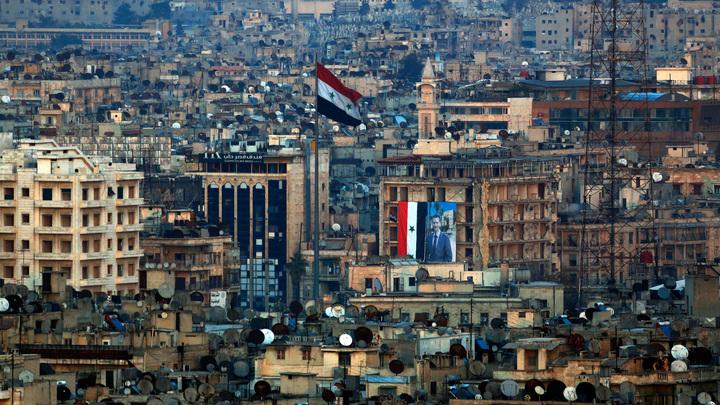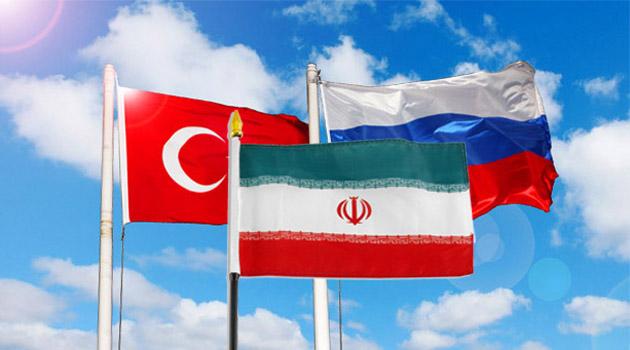Ukrainian crisis - catalyst for cooperation between Russia, Iran, Türkiye Tehran summit-2022 on Caliber.Az
The global processes taking place in the last six months against the background of the war in Ukraine and the open confrontation between Russia and the West have once again actualised the Middle East security problem. This was accompanied by the recent Middle East tour of American President Joe Biden, and this is also indicated by the summit with the participation of the Turkish, Iranian and Russian leaders, which is currently taking place in Tehran.
It is known that the three regional powers will discuss the Syrian crisis and the situation in Donbas in the Astana format. To recap, Türkiye, Iran and Russia are the guarantor countries of the Astana format for the settlement of the conflict in Syria, which has been in effect since 2017. It was then that the delegations of Russia, Iran, and Türkiye, as well as representatives of the leadership of Syria and the Syrian opposition held talks in Astana for the first time.
Formally, the current agenda of the summit involves discussing measures aimed at the final elimination of the hotbed of international terrorism in the Syrian Arab Republic, but its main outcome will depend on the previously scheduled bilateral meetings between the leaders in the tete-a-tete format.
In general, if we consider the Syrian crisis as a key reason for cooperation between Russia, Iran and Türkiye, then it is obvious that there are certain advances in this direction - the parties came to a compromise on a number of issues in the Middle East at the time. Over the past two years, the military-political situation in Syria has remained virtually unchanged, and the last two major military escalations in Syria occurred in late 2019 - early 2020. In the fall of 2019, as a result of the military operation "Source of Peace" against Kurdish military formations in northeastern Syria, Ankara reached agreements with the United States and Russia on the establishment of a buffer zone controlled by Türkiye. As a result of military actions between the Syrian government forces and the Turkish-backed armed opposition in the northwest of the country during this period (2019-2020), the Russian and Turkish leaders concluded a ceasefire agreement, which significantly reduced tensions in Idlib province.

That is, by and large, Iran, Türkiye and Russia are interested in resolving the Syrian crisis, even despite the difference in positions and approaches. Each of these countries has its own interests in the region and will undoubtedly continue to promote them in order to maintain the position of an active player in the settlement of the Syrian problem. For example, one of Türkiye's key tasks in Syria is to ensure the security of its southern borders from attacks by terrorist Kurdish formations (PKK, Syrian Democratic Forces). There are opinions in the Russian expert community that against the background of the conflict in Ukraine, the sanctions war between Russia and the West, as well as the process of Finland and Sweden joining NATO, Ankara has serious levers of influence on its partners, which, accordingly, should contribute to achieving its goals in Syria.
However, in fact, Türkiye is demonstrating the opposite. As you can see, Ankara does not use the levers of pressure that have appeared against the interests of its regional partners - Iran and Russia. It has not joined the anti-Russian sanctions, but at the same time continues to provide humanitarian and military assistance to Ukraine and opposes US sanctions for the purchase of Russian S-400.
As for Russia, of course, the Ukrainian crisis has largely called into question its role as an authoritative actor capable of resolving conflicts by diplomatic methods. Therefore, in the face of confrontation with the West and the United States, it is fundamentally important for Russia to strengthen its position in the Middle East region, which means closer consolidation with Tehran and Ankara as direct players involved in the Syrian conflict is needed. Therefore, most likely, during bilateral negotiations with his colleagues, Putin may make some new compromise solutions with allies in the Middle East.
Of course, Russia has serious interests in this region and remains the largest supplier of weapons to Syria. However, now that Russia finds itself in a really difficult foreign economic situation, it needs to strengthen cooperation with countries less susceptible to pressure from the United States, in particular with Türkiye. In this sense, Moscow's bets on Ankara are very rational. Because Türkiye continues to demonstrate a principled and independent policy even while being part of NATO. Official Ankara is guided primarily by state and national interests, and not by the wishes of the United States and the West, which also attracts Russia and Iran.

At the same time, Türkiye's balanced foreign policy not only strengthens its image as a powerful power in the system of international coordinates but also contributes to expanding the range of interaction with neighbouring states, for example, with Russia, especially now that it has actually been knocked out of foreign world markets. Therefore, it is not surprising that Moscow is trying to intensify cooperation with Türkiye, despite the previously existing political contradictions, including in Syria. On the other hand, it should not be discounted that in addition to the Middle East, where the interests of Russia, Türkiye and Iran intersect, there is also Central Asia and the South Caucasus, to which both Türkiye and Iran are directly related. Therefore, at least at this stage, when Russia is completely mired in the protracted Ukrainian crisis, the creation of a new regional security system in Central Asia and the South Caucasus seems possible for it due to the strengthening of partnership relations with Iran and Türkiye, as well as subject to the convergence of the positions of the latter.
This arrangement suits Russia because it creates conditions for it to secure its own interests in these regions and minimise external risks from the so-called collective West. If earlier Moscow could fully controlled the processes taking place in important strategic regions of the former Soviet Union, at this stage its position has significantly weakened. Therefore, Russia's partial turn towards the Big East, in particular Türkiye and Iran, is primarily connected with the Ukrainian crisis, which has definitely exhausted the possibility of developing a unified system of Eurasian security. Therefore, it is most likely that the Ukrainian conflict has become a clear catalyst for Russia's sharp and multifaceted interaction with Türkiye and Iran.








